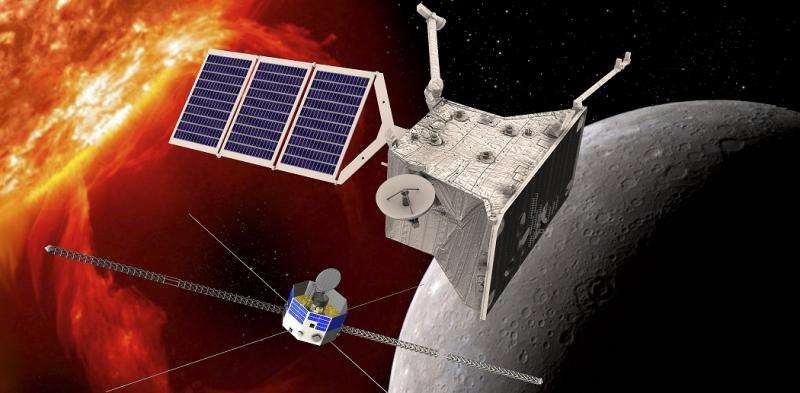BepiColombo mission to Mercury on track for April 2018 launch

Humanity's next visitor to the solar system's innermost planet remains on track for April 2018, according to the project's scientist. The BepiColombo mission, being developed jointly by the European Space Agency (ESA) and the Japan Aerospace Exploration Agency (JAXA), is currently ahead of final acceptance tests that will prepare it for shipment to the launch site.
"BepiColombo is on track for launch in 2018. At the moment we are preparing for some final acceptance tests. On our 'Mercury Transport Module' (MTM) we need to finish the installation of some late deliveries and then the module has to undergo a thermal verification and thermal balance test. This is to prove that the thermal shielding of this spacecraft module works as predicted by the models," Johannes Benkhoff, BepiColombo project scientist at ESA, told Astrowatch.net.
Similar tests have already been conducted for all the other modules of BepiColombo. After the MTM thermal test, the engineers will have to perform a mechanical verification test of all the units together. This is to prove that BepiColombo will be able to survive the vibrations during the launch of the spacecraft. The vibration test is currently scheduled for early 2017.
After all these tests, BepiColombo will be shipped to the launch site in Kourou, French Guiana, where it will be launched in April 2018.
The mission will consist of two separate spacecraft that will orbit the small rocky planet. ESA developed the Mercury Planetary Orbiter (MPO), and JAXA provided the Mercury Magnetospheric Orbiter (MMO). MPO will study the surface and internal composition of the planet, while the MMO will study Mercury's magnetosphere.
"The mission is very important for ESA. It is one of our flagship missions. The cooperation with the Japanese side is very good and smoothly. The Japanese provided the MMO spacecraft, it was delivered in time and it is ready for the final steps—spacecraft vibration test and launch," Benkhoff said.
BepiColombo was designed to study the composition, geophysics, atmosphere, magnetosphere and history of Mercury. It will investigate the origin and evolution of this planet, trying also to answer essential questions regarding our solar system and other planetary systems as well.
"There are some fundamental questions about the evolution and history of our solar system, where results from BepiColombo can contribute to a better understanding. Mercury is the planet closest to the sun and a kind of end-member of our solar system. Many extra-solar planets are in orbits close to its parent star like Mercury," Benkhoff said.
He added that the mission has a very comprehensive payload to enable scientists to perform almost all investigation needed for a good characterization of the planet and of processes in its environment.
BepiColombo is destined to follow in the footsteps of NASA's MESSENGER spacecraft, orbiting Mercury from 2004 to 2015. That mission raised numerous fundamental questions about the planet's chemical composition, geology, and magnetic field. Therefore, BepiColombo will have a unique chance to address these issues, adding its peculiar point of view.
BepiColombo will be launched by ESA's Ariane 5 booster on a direct escape trajectory to Venus. During its journey to the solar system's smallest planet it will perform two gravity-assist maneuvers around Venus and four gravity assists of Mercury. The mission is expected to arrive at Mercury in December 2024 and to operate until May 2026.
Source: Astrowatch





















